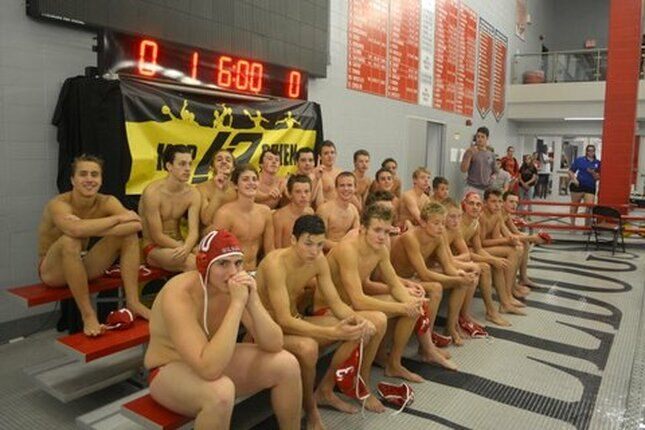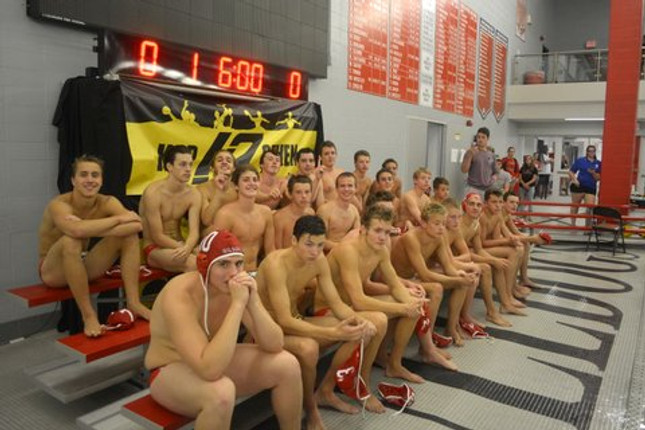Your Cart is Empty
Most teams who haven’t experienced the win column in a while start to attribute their short comings to things like lack of talent, poor coaching, or third party factors such as referees and game environments. It might seem like human nature to default to explanations such as these but this type of thinking will prevent improvement. In fact, these are all scapegoats that help athletes and coaches displace responsibility and ownership of their impact in the game to aspects out of their control. While using these reasons seems like an easy way to cope, there is one important underlying explanation for lack of team success that is much more beneficial for coaches and athletes to address. That is trust.
Trust can be found as an underlying factor to an athlete unable to execute routine plays in the water such as passing or sprinting. Coaches, parents, and the athlete themselves know when their performance doesn’t match what they have demonstrated in previous performance. Athletes can also lose self-trust when they are in a slump and that is usually a reflection of their focus being caught in their past mistakes (i.e. missed shots or defensive mistakes). The best way to help athletes build self-trust is to help them focus on performing in the present moment. Use of focus cue words (“right now” “this play”) helps and it is also a great exercise to remind them of past successes and help them re-experience them through imagery.
Coaches play a pivotal role in team trust. If one or two influential players on the team do not trust the coaches’ ability to design tactics or even communicate them to the players then they will most likely have a difficult time finding cohesion with the other players on the team. This also prevents “buy-in” from all athletes in the water. As a coach it is your job to empower the athletes to be at their best at all times. Since athletes are human, there will be mistakes and their absolute best will not always be there. However a great coach has the ability to read their athletes by meeting them where they are emotionally and intellectually to find a way to empower them to give 100% of whatever they do have each day.
For the teams who are working on building a cohesive unit especially headed into a huge tournament such as the Junior Olympics, there are four key components of trust to openly discuss and work on throughout training and competition. I call them the ABCD’s of team trust:
- Accountable – everyone on the team should first and foremost check in with themselves to make sure they are taking ownership and responsibility for their actions. In order to positively influence teammates, you first need to be a positive influence on yourself. This is also known as leading from the inside out.
- Believable – the words that you say need to have meaning behind them and the best way to build that meaning is to do as you say. If coaches and athletes ask something to be done a certain way, they need to also do it that way.
- Committed – athletes and coaches who do not completely commit to the team or to plays in the moment of the game will have a difficult time gaining the trust of their teammates and members of the team. Show that you are all in and willing to sacrifice yourself for the betterment of the team. Phil Jackson, legendary basketball coach, says it well “You need to put the “we” above the “me”.
- Dependable – this is all about consistency by showing up and delivering on time every time. You also need to deliver within the boundaries of your role on the team. If you do too much or too little within your team role, your athletes and teammates will not know what to expect and this will diminish trust.
Remember to look to find control as teams and as individuals by becoming more aware of what is diminishing trust both in the water and out. As always if you have questions or comments, please reach out through my contact below. I wish all the best to the teams, coaches, and athletes competing at the Junior Olympics.
About the author: Brian Alexander is an athlete mental skills coach who helps athletes learn to train mental aspects related to their sport by implementing sport psychology techniques. Contact Brian for mental skills coaching via email: alexander.brian3@gmail.com or at www.athletementalskillscoach.com. Also follow him on Twitter @BA_POS_MIND Facebook (Athlete Mental Skills Coach), and LinkedIn.




